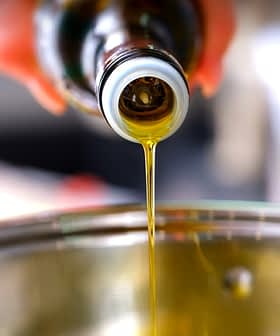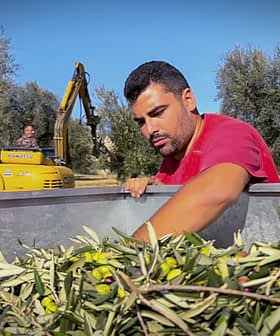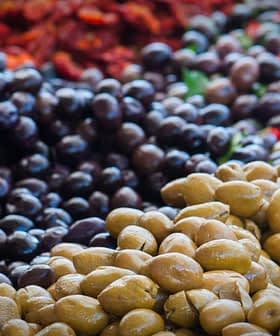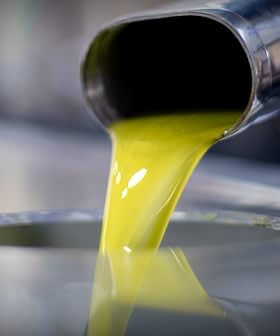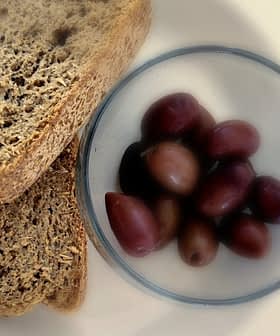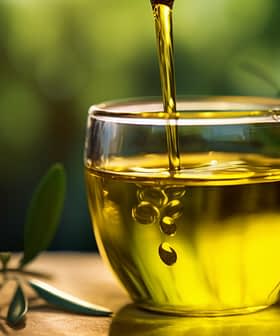Healthy Compounds in Extra Virgin Olive Oil Still Present After Exposure to Heat
New research confirms the key components in extra virgin olive oil survive temperatures used in most domestic cooking.
New research published in the scientific journal Antioxidants found that the healthy compounds in extra virgin olive oil remain intact even after cooking, impacting potential future nutritional guidelines. The study from the University of Barcelona showed that polyphenols in olive oil decreased slightly when cooked, but still met EU standards for healthy food, making it a suitable option for cooking.
The most healthy compounds found in extra virgin olive oil do not disappear when the oil is used for cooking, according to new research published in the scientific journal, Antioxidants. The implication may have an impact on future nutritional guidelines.
Researchers from the University of Barcelona focused on evaluating how the attributes of olive oil change when it is used for sautéing in a household kitchen.
After cooking at a moderate temperature, (polyphenols and antioxidants) were still in the oil and in concentrations high enough to meet the E.U. parameters, meaning this oil should be used for cooking.
While the health properties in raw extra virgin olive oil are well known, its qualities and characteristics when used for cooking have seldom been investigated.
New evidence from the study showed that the polyphenols do not disappear in the process of being cooked. The antioxidant qualities were somewhat reduced, but still met the European criteria for healthy food.
See Also:Cooking with Olive OilAlong with their colleagues in Madrid and São Paulo, the Barcelona-based researchers studied extra virgin olive oils, sautéed it at 120 and 170°C (250 and 340°F).
The content of polyphenols decreased by 40 percent at 120°C and 75 percent at 170°C — to levels of antioxidants that still qualify the oil as healthy under European Union standards, Julián Lozano Castellón, the project coordinator, told Olive Oil Times. “We decided to do the experiment with those two temperatures because they are usually the lowest and the highest temperatures used in a domestic sauté process.”
Interestingly to the researchers, cooking the olive oil for a longer time did not substantially change the outcome.
“It did not affect the total amount of phenols,” Lozano Castellón said. “It is true that some simple phenols were affected by this variable, such as hydroxytyrosol or hydroxyoleuropein aglycone, whose concentration did decrease with longer cooking times.”
However, the researcher highlighted that the results came from short cooking times of less than one hour.
“Normal cooking times are short — in our study, the longest time was 60 minutes — which chemically is a really short period of time,” Lozano Castellón said. “If some phenolic compounds were affected by time [exposed to the heat], it means those compounds are very labile, even though the proportion in which time affected those compounds was small compared to the effect of the temperature.”
The research confirmed the result of previous studies, which have found extra virgin olive oil to be the safest vegetable oil with which to cook at high temperatures and helps absorb the phenolic compounds found in vegetables when cooked together.
“Extra virgin olive oil is not only recommended for its fatty acid profile, but also for its more than 200 minor components, many of them with antioxidants properties,” Lozano Castellón said.
“In this study, we proved that after cooking at a moderate temperature, those minor components were still in the oil and in concentrations high enough to meet the E.U. parameters, meaning this oil should be used for cooking.”


